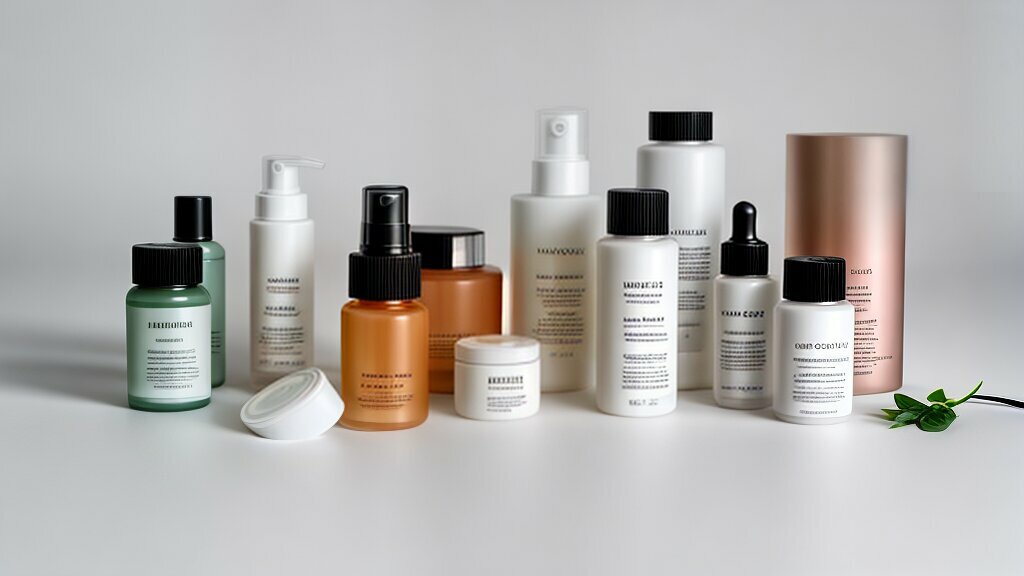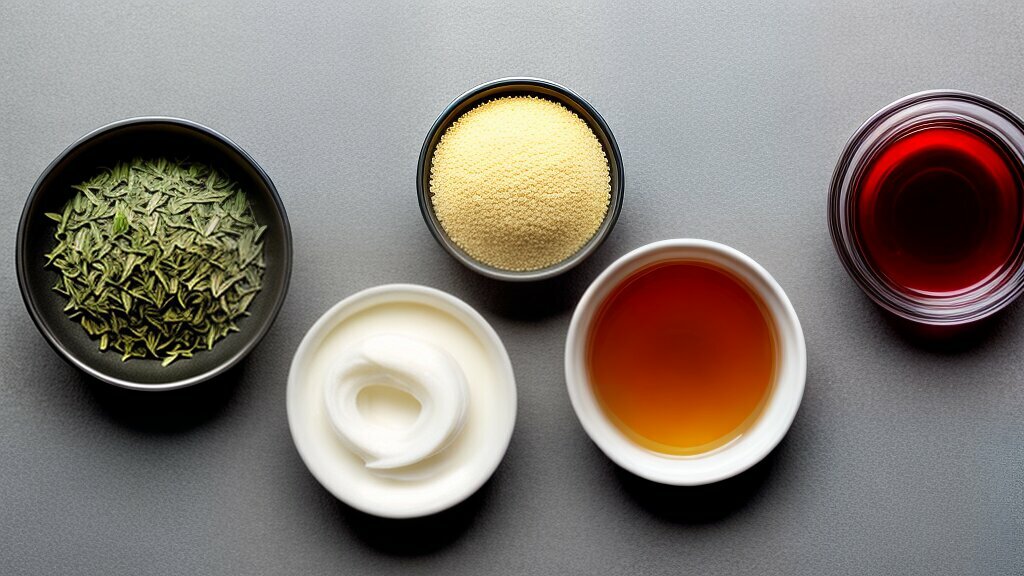Welcome to the world of organic skincare! If you’re looking to achieve radiant skin naturally, then you’ve come to the right place. Organic skincare is all about using natural ingredients and avoiding harmful chemicals, and it’s quickly gaining popularity in Australia, where we value eco-friendly and sustainable living.
Organic skincare not only helps to nourish your skin but also reduces the risk of irritation and allergic reactions, making it suitable for all skin types. By making a few simple changes to your skincare routine, you can experience the benefits of organic skincare and achieve a glowing complexion.
Key Takeaways:
- Organic skincare uses natural ingredients and avoids harmful chemicals
- Australian eco-friendly values make organic skincare popular in the country
- Organic skincare nourishes the skin and is suitable for all skin types
Building a Natural Skincare Routine: Organic Skincare Tips for Everyday Glow
If you’re looking for an organic beauty routine that creates a natural glow without the use of harsh chemicals, then look no further. Building a natural skincare routine is easy and can lead to lasting results.
First, it’s important to understand the benefits of using organic skincare products. These holistic skincare tips are chemical-free and can help promote healthy, glowing skin. When building your natural skincare routine, focus on using organic skincare ingredients that are packed full of vitamins and antioxidants.
| Cleansing | Toning | Moisturizing |
|---|---|---|
| Start by cleansing your skin with an organic face wash, removing dirt and impurities. This step preps your skin for the next steps. | Follow up with an organic toner to balance your skin’s pH and add extra nourishment. | Finish your routine with an organic moisturizer that fits your skin type. Organic ingredients like shea butter, jojoba oil, or rosehip oil are excellent choices for hydration. |
When selecting organic skincare ingredients, consider your skin type and concerns. For example, tea tree oil is perfect for oily skin, while aloe vera is ideal for those with sensitive skin. For a boost of hydration, add a few drops of rosehip oil into your moisturizer.
By creating a natural skincare routine, your skin will thank you for the attention and care. Take the first step towards healthy, glowing skin with these holistic skincare tips today and achieve the radiant glow you’ve been dreaming of.

DIY Skincare Recipes: Nourish Your Skin with Natural Ingredients
Why spend a fortune on store-bought skincare products when you can make your own using natural, organic ingredients? Not only are DIY skincare recipes cost-effective, but they also allow you to have control over the ingredients you’re putting on your skin.
Here are three easy-to-make DIY skincare recipes that will leave your skin feeling nourished and rejuvenated:
| Recipe | Ingredients | Directions |
|---|---|---|
| Hydrating Avocado Face Mask | 1 ripe avocado, 1 tbsp honey, 1 tbsp olive oil | Mash the avocado in a bowl. Add the honey and olive oil. Mix well. Apply the mixture evenly onto your face. Leave on for 15-20 minutes. Rinse with lukewarm water and pat dry. |
| Exfoliating Coffee Scrub | 1/2 cup coffee grounds, 2 tbsp coconut oil, 1 tbsp brown sugar | Mix all ingredients in a bowl. Rub onto your skin in circular motions. Rinse with lukewarm water. Use 1-2 times a week. |
| Soothing Aloe Vera Moisturizer | 1/2 cup aloe vera gel, 1 tbsp almond oil, 1 tsp vitamin E oil | Mix all ingredients in a bowl. Transfer the mixture to a clean container. Apply onto your skin as needed. |
These recipes use organic ingredients like avocado, coffee grounds, and aloe vera gel that are known for their skin-nourishing properties. Plus, by making your own skincare products, you can avoid harmful preservatives and chemicals commonly found in store-bought products.
So why not give DIY skincare a try? Your skin will thank you!

Non-Toxic Skincare Products: Choosing the Best for Your Skin.
If you’re looking to switch to organic skincare, it’s important to also consider the toxins found in conventional skincare products. Many popular beauty brands use chemicals that can be harmful to your skin and overall health. By choosing non-toxic skincare products, you can still achieve beautiful skin without sacrificing your well-being.
When shopping for non-toxic skincare products, it’s essential to read the labels and look for harmful ingredients to avoid. Some common chemicals found in conventional skincare products include parabens, phthalates, and sulfates. These chemicals can cause skin irritation, disrupt hormones, and even increase the risk of cancer.
Instead, look for skincare products that use organic and natural ingredients, such as aloe vera, chamomile, and lavender. These ingredients not only provide nourishing benefits to your skin but also have soothing properties that can calm inflammation and redness.
| Certifications | Description |
|---|---|
| COSMOS | International standard for organic and natural cosmetics. |
| ACO | Australian certification for organic and natural cosmetics. |
Australian organic skincare brands, such as Sukin and A’kin, offer non-toxic and eco-friendly options that are also effective. By choosing these products, you can support local businesses while also prioritizing your health and the environment.
Remember: Your skin is your body’s largest organ, and what you put on it matters. Choosing non-toxic and organic skincare products can not only improve your skin’s appearance but also protect your overall health.

Holistic Skincare Tips: Nurturing Your Skin from Within
If you want to achieve radiant skin naturally, it’s important to understand the connection between your skin and overall health. By taking a holistic approach to skincare, you can nourish your skin from the inside out.
1. Maintain a Healthy Diet
What you eat can have a big impact on your skin’s appearance. Focus on consuming nutrient-rich foods, such as fruits, vegetables, and whole grains. These foods contain vitamins and minerals that promote healthy skin. Omega-3 fatty acids, found in fatty fish and nuts, can also help reduce inflammation and improve skin texture.
Additionally, drinking plenty of water can help keep your skin hydrated and looking plump. Aim for at least eight glasses of water per day, or more if you’re especially active.
2. Manage Stress Levels
Stress can cause a variety of skin problems, including breakouts and dryness. Learning to manage your stress levels can help improve your skin’s appearance. Try stress-reduction techniques such as meditation, deep breathing, or yoga. Getting enough sleep is also essential for reducing stress and keeping your skin looking healthy.
3. Incorporate Organic Ingredients
Using organic skincare ingredients isn’t just important for your skin’s health – it can also benefit your overall well-being. Look for ingredients such as chamomile, lavender, and calendula, which are known for their calming properties. Aloe vera and jojoba oil are also great choices for hydrating and soothing the skin. In addition to using organic products topically, consider incorporating these ingredients into your diet as well. For example, drinking chamomile tea can help reduce inflammation and promote relaxation.

By taking a holistic approach to skincare, you can achieve radiant skin naturally. Remember to maintain a healthy diet, manage stress levels, and incorporate organic ingredients into your skincare routine and diet. By doing so, you’ll not only improve your skin’s appearance but also promote your overall well-being.
Embracing Eco-Friendly Beauty: Sustainable Habits for Radiant Skin
When it comes to skincare, it’s not just about what you put on your skin, but also how your beauty routine impacts the environment. By embracing eco-friendly habits, you can take care of both your skin and the planet. Here are some tips to help you get started:
Reduce Waste with Refillable Packaging
Many skincare brands now offer refillable packaging options, which reduce waste and save you money in the long run. Look for products that come in glass or metal containers that can easily be refilled.
Image source: 
Opt for Reusable Beauty Tools
Say goodbye to one-time-use cotton pads and wipes. Instead, opt for reusable options such as bamboo cotton pads and muslin cloths. Not only are these better for the environment, but they can also save you money in the long run.
Choose Eco-Friendly Alternatives
Many beauty products contain harmful ingredients that can damage the environment. Look for eco-friendly alternatives such as bamboo toothbrushes, natural deodorants, and biodegradable body washes.
Support Sustainable Brands
Many Australian organic skincare brands prioritize sustainability and eco-friendliness. Look for certifications such as COSMOS and ACO to ensure you are supporting brands committed to environmental responsibility.
By embracing eco-friendly beauty habits, you can take care of your skin and the planet. Small changes can make a big impact, so start today and enjoy radiant skin naturally.
Conclusion
Congratulations! You’re now armed with all the knowledge and tips you need to achieve radiant, glowing skin naturally. By incorporating organic skincare into your daily routine, you can not only improve the appearance of your skin, but also protect your health and the environment.
Remember These Key Takeaways:
Organic skincare products are made with natural ingredients and free of harmful chemicals, making them a safer and more effective option for your skin.
Building a natural skincare routine with organic products can help you achieve a healthy, glowing complexion.
DIY skincare recipes using organic ingredients can be fun, easy, and affordable alternatives to store-bought products.
Choosing non-toxic, eco-friendly skincare products can reduce your exposure to harmful ingredients and support sustainable practices.
Developing holistic skincare habits, such as maintaining a healthy diet and managing stress, can have a positive impact on both your skin and overall health.
By embracing eco-friendly beauty practices, you can reduce your environmental footprint and support brands that prioritize sustainability.
So go ahead and try out these organic skincare tips and see the difference it makes for yourself. Your skin (and the planet) will thank you for it!
FAQ
Q: What is organic skincare?
A: Organic skincare refers to the use of skincare products made from natural and organic ingredients, free from synthetic chemicals and pesticides. These products are made with a focus on sustainability and promoting the health of both the skin and the environment.
Q: Why should I choose organic skincare?
A: Organic skincare products offer numerous benefits. They are gentle on the skin and less likely to cause irritation or allergic reactions. They are also more environmentally friendly, as they are made without harmful chemicals that can pollute our water systems and harm marine life. Additionally, organic skincare products often contain higher levels of vitamins, antioxidants, and nourishing ingredients, providing better long-term benefits for your skin.
Q: Are organic skincare products effective?
A: Yes, organic skincare products can be highly effective. By using natural ingredients, these products work in harmony with the skin’s natural processes, promoting a healthier and more balanced complexion. However, it’s important to choose high-quality organic skincare products from reputable brands to ensure their effectiveness.
Q: Can I make my own organic skincare products?
A: Absolutely! Making your own organic skincare products can be a fun and rewarding experience. There are plenty of DIY skincare recipes available that use natural ingredients like fruits, oils, and herbs. By making your own products, you have control over the ingredients and can customize them to suit your skin’s specific needs.
Q: How can I identify non-toxic skincare products?
A: When shopping for skincare products, look for labels that indicate they are certified organic or use natural and non-toxic ingredients. Avoid products that contain harsh chemicals like parabens, sulfates, and synthetic fragrances. Reading product labels and doing research on ingredients can help you identify non-toxic skincare options.
Q: Are organic skincare products suitable for all skin types?
A: Yes, organic skincare products are generally suitable for all skin types. However, it’s important to choose products that address your specific concerns and skin type. For example, someone with oily skin may benefit from products that contain tea tree oil or witch hazel to help control oil production.
Q: Can organic skincare help with skin conditions like acne or aging?
A: Yes, organic skincare can help with various skin conditions. Many organic products contain ingredients like tea tree oil, aloe vera, and rosehip oil, which are known for their antibacterial, soothing, and rejuvenating properties. However, individual results may vary, and it’s always best to consult with a dermatologist for personalized advice.
Q: Are organic skincare products more expensive?
A: While some organic skincare products may have a higher price tag compared to conventional products, there are affordable options available. It’s important to consider the quality of the ingredients and the potential long-term benefits when comparing prices. Investing in organic skincare can be seen as an investment in your skin’s health and the environment.
Q: Are there any Australian organic skincare brands you recommend?
A: There are several Australian organic skincare brands that prioritize natural and sustainable ingredients. Some popular options include Sukin, Biologi, and Mukti Organics. These brands offer a wide range of products, from cleansers and moisturizers to serums and masks, to cater to various skincare needs.
Q: Can organic skincare be used in combination with other skincare products?
A: Yes, organic skincare products can be used in combination with other skincare products. It’s important to choose products that work well together and complement each other’s ingredients. However, it’s always recommended to do a patch test before introducing new products to your skincare routine to ensure compatibility and avoid any potential reactions.
